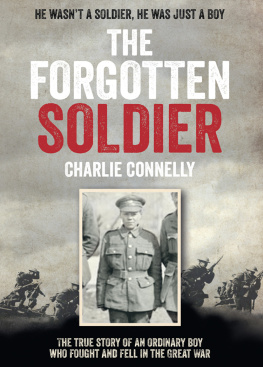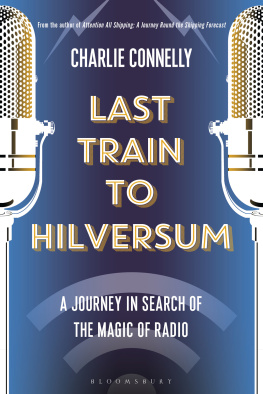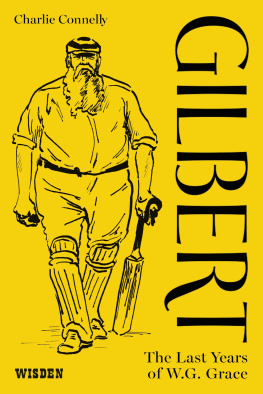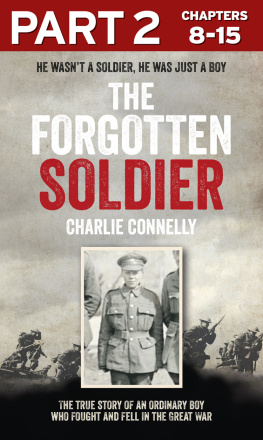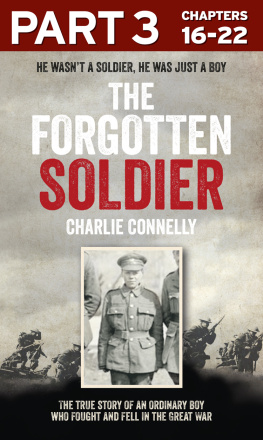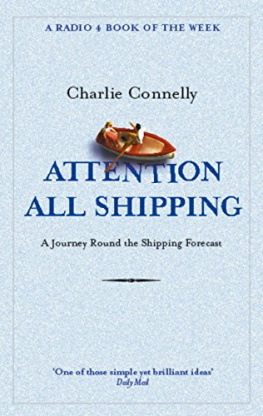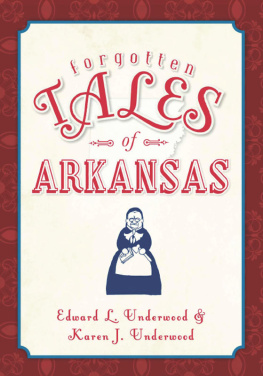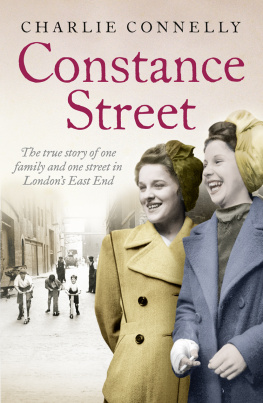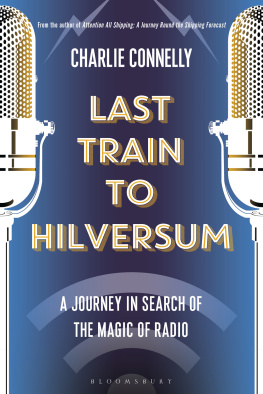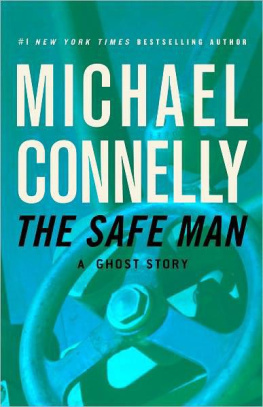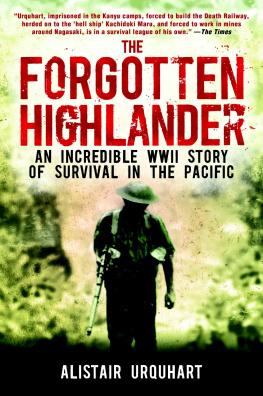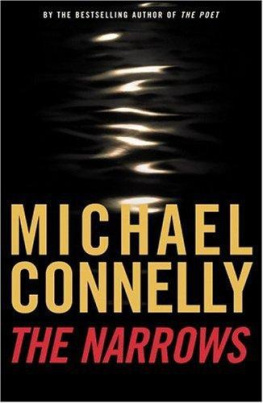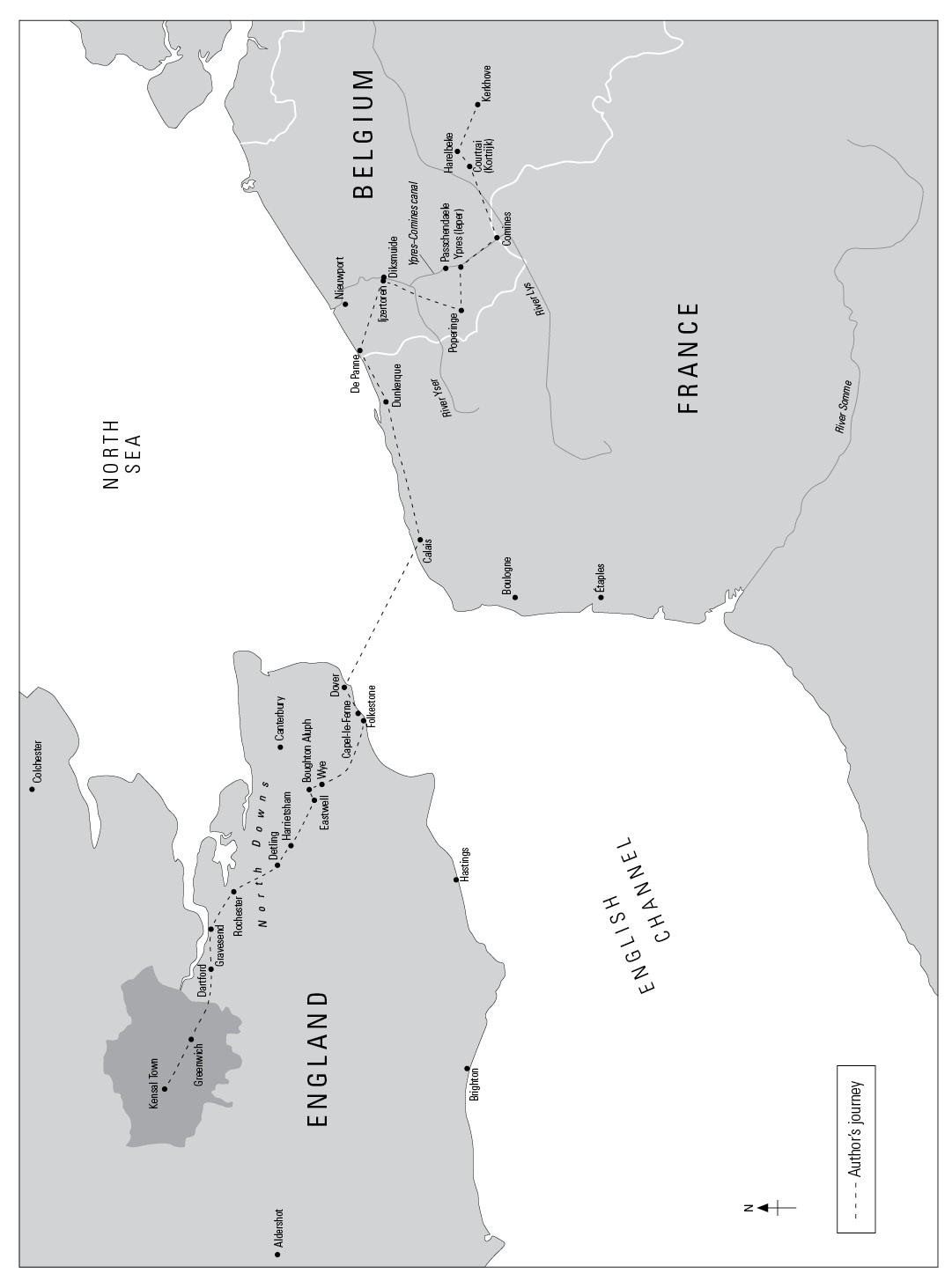1
I didnt know it at the time but the silence on the other end of the line was the silence of nearly a century.
Id been researching the family tree and was proving to be barely competent as a beginner genealogist. That said, Id somehow managed to barge my clumsy way back through the records as far as the beginning of the twentieth century, and I was on the phone to my dad to update him on some of the things Id found.
So, yes, North Kensington was where your grandparents were living at the time, just by Ladbroke Grove, I said. Oh, I added, almost as an afterthought, and Ive also found your uncle Edward who was killed in the First World War.
Silence.
I didnt know anything about that, said the quiet voice at the other end of the line.
Private Edward Charles John Connelly of the 10th Battalion, Queens (Royal West Surrey) Regiment was killed in Flanders on 4 November 1918. He was nineteen years old. Edward was my grandfathers elder brother, my fathers uncle, and here was my father telling me that he didnt even know hed had an uncle Edward.
How could it be that my dad, who was given the middle name Edward when he was born more than two decades after Edward Connellys death, had never been told about his own uncle? Dad had always told me that his father, who was barely sixteen years old when the Great War ended, had lied about his age and enlisted, but never spoke about what he experienced. To think that included the actual existence of his brother, however, seemed an extraordinary thing.
But then, my grandfathers reticence was not unusual. Its something you hear quite often about men of that generation: how the things they saw and experienced had been so traumatising that theyd compartmentalised their memories and sent them away to somewhere in the furthest wispy caverns of the mind, never to emerge again. My grandfather was to all intents and purposes still a child during the war, yet hed been to a place about as close to hell on earth as anyone could imagine. Is it any wonder that he wasnt chatting amiably away about it at the kitchen table while filling in his pools coupon? Maybe in there, enmeshed among the memories and experiences that hed closed away for ever, was his own brother whod gone off to war and never come home. Maybe hed felt some kind of survivor guilt that the boy who really had no business being there in the first place had returned but his big brother never did, never had the chance to marry and have a family, to have a long and busy life and leave a legacy of memories and experience that would succeed him for generations.
Maybe this was how Edward Connelly fell between the cracks of history and the fissures of memory to lie forgotten in the Belgian mud for the best part of a century. Perhaps this is how the silence fell over a boy sent off to war, to die in a strange country at the arse-end of a horrendous conflict that was effectively all over, pending official confirmation from a bunch of paunchy bigwigs with fountain pens in a French railway carriage a week later. The mystery of the forgotten soldier in the family history was one that would come to intrigue me more and more.
Of all the pointless deaths of the 191418 conflict, Edward Connellys seems more pointless than most. The war on the Western Front was all but over, and the armies were effectively going through the motions. By 4 November 1918 the outcome was beyond doubt: the Germans had gambled everything on their spring offensive earlier in the year and, despite making significant territorial gains, had been forced back way beyond their original lines and all but collapsed. Morale at home and on the Front had imploded. The money was running out. The game was up. The last couple of weeks before the armistice were pretty much token efforts at attack and defence, largely spent with the Allies chasing the retreating Germans across the Belgian countryside towards Germany.
One of those token efforts killed a token soldier: Private Edward Connelly, a nineteen-year-old railway-carriage washer from West London.
I knew nothing about him or the circumstances of his death, but it all seemed so pointless and unfair and I wanted to know more. I tried to find out as much as I could about Edward Connelly to fill in the uncle-shaped hole in my dads life, but it soon became clear there really wasnt much to go on. There was a birth certificate dated 25 April 1899. I found a baptism record. He appeared on the censuses for 1901 and 1911 as a two-year-old and a twelve-year-old living in North Kensington in London. There was an entry in Soldiers Died in the Great War, 19141919 and a record of his grave at the Commonwealth War Graves Commission. And that was it; that was all I could find.
There isnt even a service record for him covering his time in the 10th Queens. These are often full of extraordinary detail, from the soldiers physical appearance to their medical records and accounts of breaches of discipline and their attendant punishments, but around two thirds of these individual soldier files from the First World War were destroyed during the Blitz. Edwards was one of them. The forgotten soldier was doing a flawless job of being forgotten.
Beyond these scant pieces of information Edward Connelly left nothing behind when he fell in the Flanders mud that cold November day in 1918, and within a generation all those who had known him and could remember him were dead. It was almost as if he died with them a second time.
As time passed I grew more and more uncomfortable about the way Edward had vanished from history. I began to feel ashamed that we didnt know who he was, and angry that his life had been snuffed out in such a pointless way a week before the armistice, for heavens sake. Whatever the rights and wrongs of the war itself, at least if hed died at Passchendaele or the Somme there would be a sense that he had been fighting for something. The date of his death just made things worse: not only had he been forgotten, but his death had been for nothing.
Having rediscovered him, I began to feel responsible for his legacy, or lack of it. I wanted to find out more about his life and how, where and why he died. According to the Commonwealth War Graves Commission he was buried at the Harlebeke New British Cemetery near Courtrai (the French spelling of modern Kortrijk), close to the Franco-Belgian border. What was he doing there? Where had he been? How did a teenager from an Irish immigrant family in the poorest part of North-West London come to be a private in the Queens (Royal West Surrey) Regiment and die in a futile battle in the final twitching throes of the First World War?

